Newport East MP Jessica Morden has challenged the UK Government on the falling numbers of UK armed forces personnel.
Speaking in Defence Questions, Jessica Morden said:
“Independent analysis by the House of Commons Library has found that Army numbers could fall to just 65,000 by the end of this Parliament if the current rate of decline continues. Instead of giving us more warm words, can the Minister tell us what specific steps his Department is taking to avoid that?”
In response, Defence minister Johnny Mercer said:
“On recruitment, we are at just under 100% of our year-long target, which comes round in April. More people are looking to join the Army than we have seen since 2010. There is a massively positive story to tell. There are no plans to reduce the number of armed forces personnel. It is a fantastic time to join up.”
Last year, we reported that the Armed Forces were 9,900 trained personnel short of their government set target. The British Army is also over 4,600 personnel smaller than it was 3 years ago.
Under the 2015 Strategic Defence and Security Review, the Armed Forces need to have 144,200 trained personnel by 2020. They’re currently at 134,300, with the number having fallen continually since 2016. Doubts have now been raised over the Ministry of Defence’s ability to meet the target.
A Ministry of Defence spokesperson defended the figures, telling the UK Defence Journal:
“The Armed Forces continue to meet all of its operational commitments to keep Britain safe. We are fully committed to improving our recruitment process, including working with Capita to ensure any challenges are being addressed.”


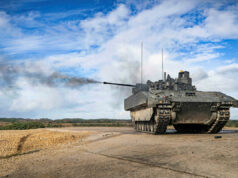
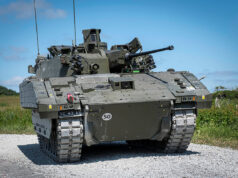


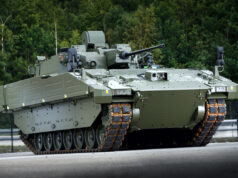
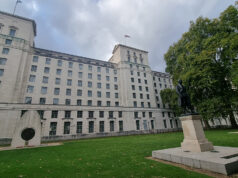


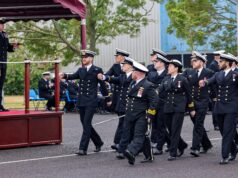


Is this regular army numbers we’re talking about?
Regular army full time trade trained strength at 1st October 2019 was 73470 against a requirement of 82030. So the deficit was 8560.
Hi Geoffrey,
144,200 is, I believe, the total strength of ALL our regular armed forces. The Army is supposed to have a regular strength of 82,000 with researves of, I think 34,000. However, last time this subject was raise the Army’s regular strength was only 77,000 (wikipedia is currently quoting 75,000!) with reserves of about 27,000…
In the early ’80’s the Army strength was at least 160,000 with 60,000 Territorial Army and more in the Regular Reserves (the latter being former regulars with a reserve commitment).
The Navy had over 60,000 regulars and the RAF about 80,000!
Such is the stupidity of successive governments..!
Thanks ChariotRider,
Appreciate the info and no argument with your comments either. I wonder whether there was ever a time when a government didn’t “solve” a problem by throwing money at it or cutting back. Not many votes in defence.!
Hi Geoffrey,
You’re welcome.
Sadly, I have come to the conclussion that the last people we should ever put in charge of the piggy bank are politicians – which kinda leaves up the proverbial creek without a paddle!
As Churchill pointed out, Democracy is the least bad of a very poor set of options – or words to that effect! So Democracy bad, everything else even worse – options on a post card please!
Many forms of Government have been tried, and will be tried in this world of sin and woe. No one pretends that democracy is perfect or all-wise. Indeed it has been said that democracy is the worst form of Government except for all those other forms that have been tried from time to time.…
Most politicians want to do the right thing. Normally they need a little help with an affordable and workable plan otherwise they are lost ….
Hi Mark B,
I have no doubt that most politicians want to do the right thing as they see it. I have met a small number of local politicians before they were elected and what they aspired to do and what they have ended up doing our not entirely the same, sadly.
The thing is many do not understand the complexity of the state machine. Even at local level the numbers alone are huge. Most County or unitary authorities have budgets that run into the £100’s of millions and the problems seemingly intractable.
At national level ministers are rarely qualified to run the departments they are given responsibility for and they certainly do not stay around long enough to a) learn, and b) be held to account for their actions!
To be fair they are the only people who can be fired regardless of how good a job they actual do (or be kept in post for doing a really poor job!).
My main concern is that they are becoming increasingly over confident or blinkered. Far too many use the phrase,”I don’t accept that!” which basically means they are not going to listen to contrary evidence, alternative points of few or take any notice of anyone trying to hold them to account.
The best and most laughable example of a politician not letting evidence get in the way of his dogmatic view point was on display from an Australian MP. Check out this video, its brilliant!
https://www.bbc.co.uk/news/av/world-australia-51369140/climate-change-australian-tv-audience-boos-sceptical-senator
Haha. Brilliant. I hadn’t seen that one.
You are correct that most candidates at whatever level believe that they can make things happen if they get elected. In most cases they are limited by the powers of the body they are elected to, their budget and the views and imagination of the others that were elected at the same time.
On climate change most politicians are stuck between a rock and a hard place. In 10-15 years we might have the tech to do everything carbon free but not yet. With today’s tech you can either do so little it makes no difference or so much you bring the planet to its knees and get lynched in the process.
As for Ministers they only set high level policy. You need really good ones to drive though meaningful change. Boris & co. need to prove themselves or consign themselves to history.
God, I rememeber when we had four armoured divs in Germany and the officers were complaining that we didn’t have enough.
…and two Carriers East of Suez!
And the country had to go to the IMF for a bailout.
Indeed. The 1970’s marked a low ebb for the UK. Btw-what carrier is that in your pic-looks like QE but with an angled deck and ski ramp. Too small for my old eyes!
It’s a QE with an angled deck. It’s the PA2 designed offered to France. Remember the French paid about €200 million into CVF design back in 2010 but the backed out due to lack of funds.
https://en.m.wikipedia.org/wiki/French_aircraft_carrier_PA2
Thanks Martin!
Firstly we need a review which shows the shape & purpose of the modern military and where people fit into it.
When talking about recruitment and retention you first need to be clear about the roles needed, training provided, state of the kit and protection provided. You need to completely review the salary & package and talk about the support for family and what happens when they go back to civvy street. At the end of the day it is a profession unlike any other which will dominate people’s lives.
I wrote to the MOD re my sons army accommodation as it falls far short of what I’d expect both as a parent and a taxpayer. the very least I’d expect is that all single soldiers have is an en suite and access to a kitchen. my son doesn’t and the barracks is closing in about 2029. Whilst I accept that his accommodation there won’t be upgraded. The reply I got from the MOD left me in no doubt that there wasn’t a great deal of urgency to improve single living accommodation. I know that some accommodation is to the right standard – a lot isn’t. No wonder retention is poor
Yes people need to know exactly where they stand. If there is a view that the Army has better things to do than worry about its troops it sends the wrong message and morale will suffer. They need a plan and if there is one already they need to share it.
And that was the question from the MP – what is the plan, the “specific steps”?
The Minister’s answer was “It is a fantastic time”. That’s the fantasy we’ll get for the next 5 years.
Yes. Well the plan is clearly to leave the problem with the people at the sharp end of the recruiting process focussing on advertising etc. They have failed to note that some changes to policy on making the profession more attractive would save them money in the long run. We will judge the politicians on their ability to sort out these problems. We live in hope.
You “will judge” the politicians – meaning in the future. No judgement on the past, getting the current army strength below 75,000. You will wait till the strength is down to, what, 65,000? Or will you then wait again to see how they sort out that problem?
Yes although I did say we. There is a new Government decisively elected for the next five years. No excuse but to act decisively on the NHS, the economy, etc. including defence. I’m anticipating spending increases especially in Northern England. Modern new facilities. More recruitment. I’m not going to waste my time b*****king an old Government I am looking to the future and saying if you are going to do it do it right.
There are 30+ million of us judging and I am only one but most of us are looking for similar things.
New government, same party. On specific defence policy we know from the minister that it is a fantastic time, in the party view. Nothing better than fantastic is offered, so that’s what I expect. The fantastic reduction of the army strength wil continue.
Well I live in hope that your fantastic reduction does not materialise. Boris had better make a mess of that one and accidentally bolster the morale of everyone in the services.
Andy, which Army are you thinking of, when I was in training Army Apprenticies College Harrogate it was 8 boys to a room, two rooms would share 4 showers, 1 bath, 6 toilets and 12 steel sinks that had to be brassod every morning for room inspection and not to forget the waxing of floors, the bed block and the perverbial flying white mug. Kitchen access, what kitchen you had the mess and the NAAFI. When I went to my first Regt I thought I had luxury three man rooms and six showers for the 50 man block Oh and a TV room that the REME took over. En Suite and access to a kitchen, its the Army not Butlins, next it will be hot showers in the field.
The issue with retention is I think somewhat different to accommodation, the first issue is numbers, if the numbers are low then active deployment is increased. Time away from family is increased putting extra strain on family and friends. The men and women suffer from burn out. Then comes the issue of salery, it is well below what it should be. If we think that service personel are in theory working 24 hours a day, seven days a week 365 days a year, leave is not a right but subject to needs and requirements. The country takes some of the best young men and women in the country, trains the hell out of them sends them to all parts of the world doesn’t even pay them a minimum wage and then gives them the opertunity to be shot at, then for the extra fun when they have done there time they could expect to be hounded by civilian lawyers because they shot back.
These are the reasons why there is the isse with retention, accomadation is low down on the list.
Hi Ron, I agree with all the points you’re making. When I was in the army in the early 80’s I go what you described. It’s just that in this day and age when the army is competing with lots of employers I think that at the very least a single soldier should have is decent accommodation along the lines that students get when in halls of residence. Clearly it will be different when training while they learn their disciplines, but when they get to their units I think it needs to be better. Clearly there are lots of reasons for poor retention and accommodation will be one of a no. My son enjoys what he does and is broadly happy with his pay. However when he moves units he would like better accommodation.
Sorry Ron, but your assessment of salary is wrong. I left the RN in 2013 as a leading hand (Corporal) earning 32k basic, a Petty Officer today is on around 40k. Plus around 36 days holiday, plus bank holidays and still a very good pension scheme. I know the wage when you first join up isn’t great, around 20k I think after recruit training. But it soon goes up. And promotion can come quickly for many. You are never going to be rich joining the Armed Forces, but you can earn a comfortable living.
Would be nice if we followed the American system in some parts. For instance the tax breaks and benefits their forces get when deployed are fantastic compared to ours. Their families are also provided with free healthcare and dental when their spouses are deployed. They also provide college funds for their kids, which in the States is a major bonus, as the universities are way more expensive than ours. There must be a better form of incentive to not only join, but to stay in.
Hi DaveyB,
I read an article sometime ago on the Thin Pin Stiped Line (I think) about public school entrants into the officer corps. Turns out quite a few of these are sons and daughters of serving military personel below a certain rank (can’t remember all the details) who are sponsored through a MoD bursery scheme – not unlike the US model you describe. It is seen as MoD’s contribution to social mobility policy as well as an optional benefit to serving personel. No doubt there are qualification requirements to the scheme, which I cannot remember but there is something in place.
I have not seen much about this anywhere else, so I am guessing the MoD doesn’t make too much fuss about this, probably because they would get it in the neck from our media numpties…
Would be nice if Germany would take responsibility for it’s own defense and not defend on others to defend it. I guess that’s asking too much of Merkel and her comrades.
To my knowledge there are no British troops left in Germany except for a few skeleton HQ types, and no RAF forces either.
The simple fact is that UK Armed Force numbers are now the smallest in modern history. I wonder how we rank in terms of the ratio of personnel to population? I do a rough calculation compared to the USA for example-multiply all our assets by 5 being the ratio of the US population to the UK’s. Some of the numbers work out quite reasonably-10 Carriers, 65 Frigates etc. but others-Army 375 000,front line aircraft 1000, look positively anaemic!
Everyone’s Armed Forces, even the Americans, are much smaller compared to the 80’s and early 90’s.
Hi Robert. That may be so but we have dropped our numbers out of all proportion to other leading nations notably France. Our navy was the worlds 2nd or 3rd largest until relatively recently and our Air force was on a par with France for many years in terms of front line aircraft numbers but now lags considerably
Yes numbers are down on France, but we are way more capable then the French. The French air force has nothing like our ISTAR and strategic airlift capabilities as an example.
Yeah this is a good thing, armed forces are a waste of money not a social good. The world would be a much better place if we did not need them. The UK is the safest it’s every been and even our “enemy countries” are basically on the same page as us and thousands of miles from us with little in the way of naval capability so it’s not surprising our armed forces are at their smallest point.
Agree Martin, and our equipment is tops and of course one British Soldier, Sailor or Airman/woman is worth at least two of all the others!!!! And to paraphrase Rhodes-“To be born British is to win first prize in the lottery of life. From that it follows that the more of the world we inhabit, the better it s for the human race!”
Cape to Cairo..!!
Usual head in the sand HMG/MOD whitewashing spin. Handing a private company a monopoly helps nobody except a few shareholders who can milk the system & rob taxpayers blind.
There is some hope. The army has to have a minimum size to maintain the private profits. But then again, the profits can be payed on the nominal establishment when the actual strength is thousands less.
Kids are more aware of the fact that a life in the UK armed forces is a wasted life and vote with their feet. Who wants to kill or be killed at the behest of a politician?
recruitment and retention are two very different phenomena.